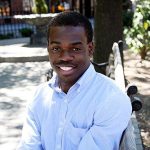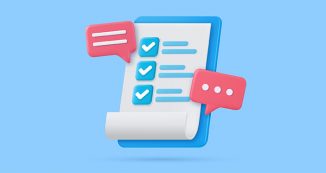
24 Mar Can You Tell Me More About That? Identifying Best Practices in Conducting Research Interviews
Register below to receive Zoom link.
Description
In this workshop, participants will learn about the various types of research interviews and differences between them. Participants will also learn best practices and tips in conducting research interviews with vulnerable populations.
Learning Objectives
By the end of this workshop participants will be able to:
- Define at least two types of research interviews.
- Identify at least five best practices in conducting research interviews.
- Identify at least two relevant resources for additional training on conducting research interviews.
Pre-Work
1 MBPRE-READ – Twelve Tips for Conducting Qualitative Research Interviews437 KBPRE-READ – Expanding Qualitative Research Interviewing Strategies242 KBPRE-READ – Research Interviews Modes and Types292 KBPRE-READ – How To Do Research Interviews in Different Ways424 KBPRE-READ – Three Types of Research Interviews351 KBPRE-READ – Exploring Sexual Development Research Interviews Over Time
Schedule of Activities
- 12:00-12:10pm – Welcome, Overview, Introductions
- 12:10-1:25pm – Presentation, Interactivity, Q&A
- 1:25-1:30pm – Thank You and Feedback Survey
About the Speaker
 Morgan (Research Project Coordinator, Division of Allergy and Infectious Disease, University of Washington) has over a decade of experience coordinating and conducting research interviews with vulnerable populations in the United States. Two most recent projects of note include The Male Relationships Study (Johns Hopkins University; PI: R. Arrington-Sanders)and Project Needle Exchange Utilization Survey (NEXUS) (University of Washington; PI S. Glick). As part of The Male Relationships Study, Morgan coordinated and assisted in the collection of qualitative data from 160 research interviews as part of this longitudinal study focused on sexual, racial and gender minority adolescents aged 15-19 year old. He is currently the coordinator of Project NEXUS, a CDC funded surveillance demonstration project, which is actively conducting research interviews via Zoom with people who inject or use drugs accessing syringe services programs across the country. Morgan oversees a team of 12 research interviewers with an end goal of 1800 research interviews conducted. Morgan is a native New Yorker with a background in anthropology and sociology and currently lives in Seattle, WA.
Morgan (Research Project Coordinator, Division of Allergy and Infectious Disease, University of Washington) has over a decade of experience coordinating and conducting research interviews with vulnerable populations in the United States. Two most recent projects of note include The Male Relationships Study (Johns Hopkins University; PI: R. Arrington-Sanders)and Project Needle Exchange Utilization Survey (NEXUS) (University of Washington; PI S. Glick). As part of The Male Relationships Study, Morgan coordinated and assisted in the collection of qualitative data from 160 research interviews as part of this longitudinal study focused on sexual, racial and gender minority adolescents aged 15-19 year old. He is currently the coordinator of Project NEXUS, a CDC funded surveillance demonstration project, which is actively conducting research interviews via Zoom with people who inject or use drugs accessing syringe services programs across the country. Morgan oversees a team of 12 research interviewers with an end goal of 1800 research interviews conducted. Morgan is a native New Yorker with a background in anthropology and sociology and currently lives in Seattle, WA.







